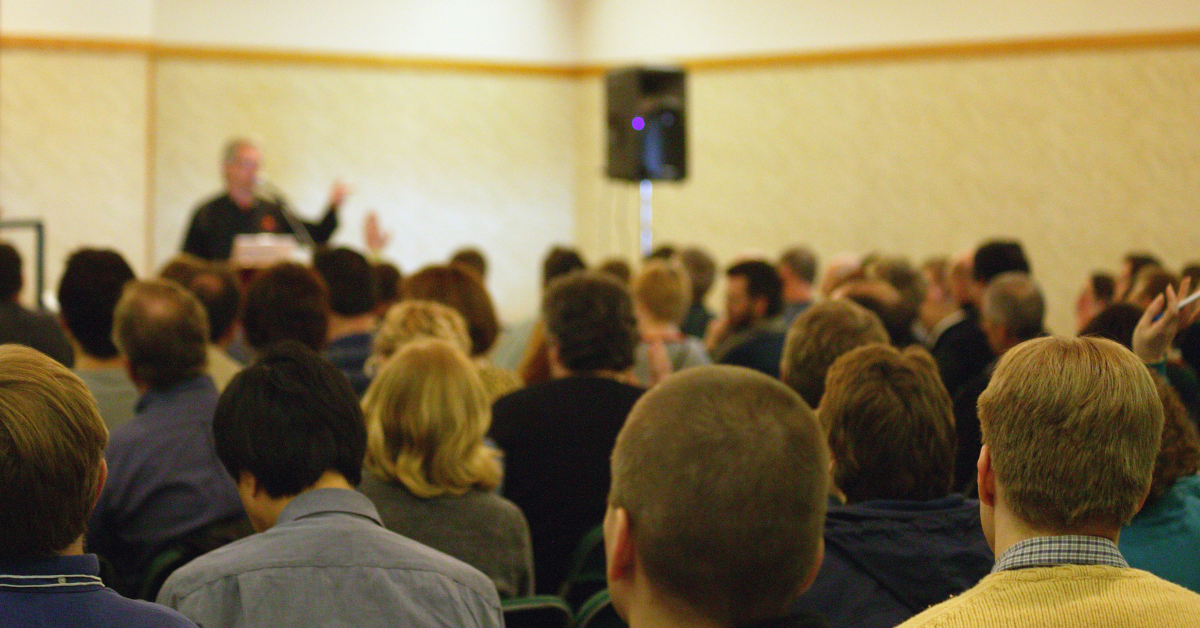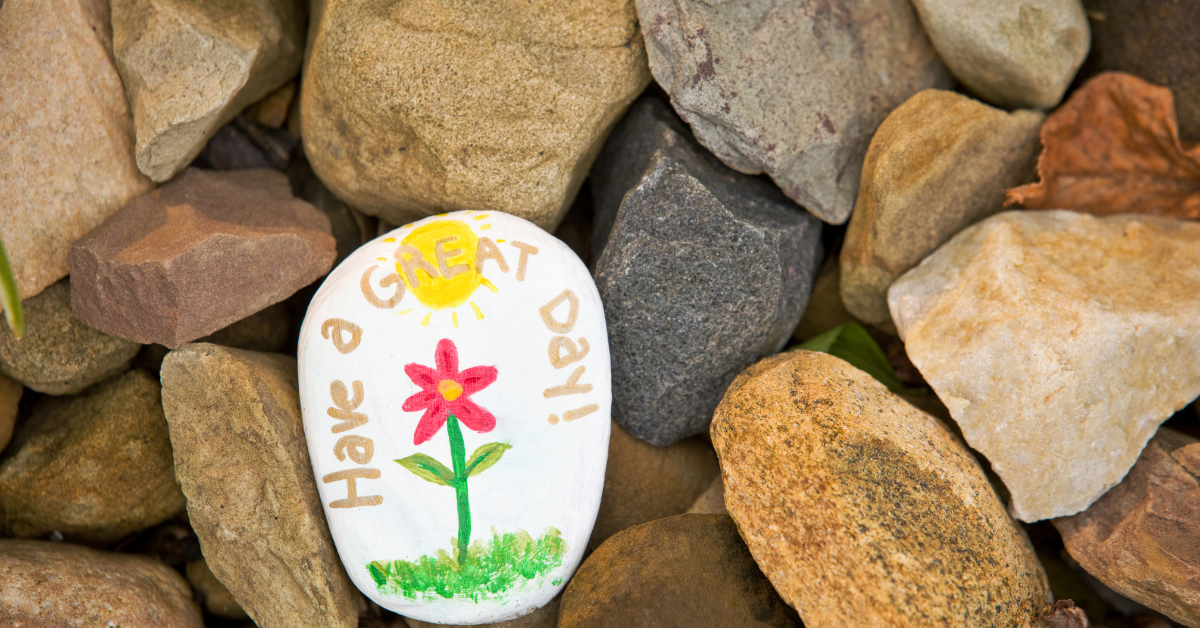98. Stories of Hope (Part 2)
We continue sharing inspiring stories of our past guests finding hope amidst anxiety and OCD struggles.
These stories highlight the power of hope, faith, and supportive relationships in overcoming anxiety and OCD.
Episode Highlights:
- Rachel Hammons, in episode 8, discovered hope through faith and contrasting God’s love with intrusive thoughts.
- Ed Syner, in Episode 42, found hope with the support of his mother during bullying and emotional challenges.
- Rhett Smith, in Episode 5, witnessed God’s redemption through his daughter’s confidence in a school play.
- Peyton Garland, in Episode 26, experienced a powerful moment of hope when a stranger displayed grace and prayed for her during an obsession-related incident.
Steve and I, in Episode 81, also shared our own story of hope, with our daughter, Faith, bringing immense joy into our lives and how her presence reminds us of the goodness of God and His faithfulness.
I also share a bonus story, reminding you of the possibility of finding reciprocal friendships through intentional effort.
Episode Summary:
Welcome to Christian Faith and OCD, episode 98! I’m thrilled to share part two of our series on stories of hope with you. If you joined us last week, you heard some incredible testimonies about finding faith and courage amid OCD. Today, we continue that journey with more inspiring stories.
First, let’s revisit Rachel Hammons from episode 8. Rachel opened up about how discovering she had OCD was a pivotal moment of hope for her. She emphasized that understanding the character of God brought her immense comfort.
In episode 42, Ed Snyder shared his story of dealing with anger and emotional abuse. Ed’s experience with bullying and the impact it had on his self-esteem was profound. His story highlights how God often works through people to bring us the encouragement and strength we need.
Next, in episode 5, Rhett Smith shared a touching story about how watching his daughter’s confidence in theater gave him hope. Rhett saw his own struggles reflected in his daughter’s success and felt reassured that God redeems our past difficulties. It’s a beautiful reminder that even though we face challenges, God can transform and use our experiences for good.
In episode 26, Peyton Garland recounted a harrowing moment of her OCD journey involving a car accident. Despite the fear and stress, she encountered a stranger who prayed for her and showed her unexpected kindness. This moment of grace provided Peyton with lasting hope and reinforced her faith in God’s providence.
Lastly, in a special anniversary episode, Steve and I reflected on how our daughter has been a beacon of joy and hope in our lives. Her presence reminds us of God’s goodness and faithfulness, even during difficult times. It’s a testament to how God’s blessings can come in the form of everyday miracles.
Thank you for joining us today. I hope these stories have uplifted and inspired you. I look forward to sharing more about my own journey through grief and recovery in our next episode. Until then, may you find comfort and hope in God’s great love for you.
Transcript
Welcome to Christian Faith and OCD, episode 98. Today on the show we are going to share some more stories of hope. This is part two from last week.
On episode 8, Rachel Hammons shared with us about her story of hope related to the character of God.
Rachel: I think that there’s a lot of little moments of hope for me, and so I think that, like looking back on my story, kind of like I mentioned earlier, the biggest piece of hope for me was learning the fact that I had OCD that was eyeopening and huge, but I also know that I think one of the biggest pieces of hope too, that I had, if you’re a Christian or if you’re a religious faith, reflecting on who you think God is or even doing some research on like. Not necessarily this specific event, this specific sin, this specific fear, but who is God? If I can learn more about the character of God, and I know that times that I’ve learned more about the character of God, the way that Jesus treated people, that is going to look vastly different than the way that my thoughts tend to speak to me.
When I reflect on who God is or at least even if that is a question because sometimes I’m like, well, I don’t know who God is, like I don’t know how he would respond. Well then just reflect on something that you know about God. I know that God is love. so if God is love, He loves me and He wants the best for me.
At least I know that I have that support. I have that hope. If God wants, just like any, hopefully, parents are loving their kids. God wants the best for his kids. God wants the best for me. At least in that, I know that I have someone on my side that’s walking through Ooc D or walking through my struggles with me, and I think that’s kind of what I tend to reflect on, especially when I’m really stuck in the obsessions and I don’t see an end to this particular one reflecting back on what you know, grounding yourself in what you know to be true.
Carrie: I really liked what Rachel said about grounding yourself back to biblical truths and things that you know about the character of God. Think that that’s so helpful.
In episode 42, Ed Snyder shared his personal story about anger and how he had to learn to manage his anger in a healthier way.
Ed: We’re going to talk about probably a lot of anxiety that I experienced in my life with everything else that’s going on. Somebody being bullied like I was, or you’ve got somebody in your life that is, they may not physically be bullying you, beating you up physically. They are beating you up emotionally and making you feel small, making you feel insufficient. It really messes with my emotions and kind of makes my eyes water a little bit when I think about the kid, Ed Snyder, and I knew me. I just love everybody. I just wanted to get along with everybody and everybody’s making fun of me and tormenting me and all of that stuff.
It literally destroyed my self-esteem. I couldn’t see my way up, and if it wasn’t for God putting somebody in my life that I called Mother, where every day I come home from school after going through a day of it’s supposed to be a day of learning, which was a day of abuse, she was there telling me, Hey, you don’t need those people.
You can do anything you set your mind to do. God’s got great things for you in your life. He’s got stuff in you that you’re going to do great with. She was constantly just hitting me with that, and it really was a saving point in my life. I don’t know where I would be if it wasn’t for the time that God used my own mother to tell me, you don’t listen to them.
You are better than that, you’re a good kid, et cetera, et cetera. As I grew, God just kept putting people in my life, one being my wife, we’re together. I mean, we’re peanut butter and jelly, and of course she knows me. I think everybody needs in their life is somebody that knows them inside and out, and she knows when to back off of me.
She knows when to get in my face and with that Irish face of hers, and I take it because I know she loves me. It’s amazing how God puts people in your life that will help you. They’re there. To be a blessing to you, to build you up. And of course, again, I don’t wanna take anything away from God, but God uses people.
God uses work. Have your faith. God can do anything. He is everything. But sometimes he uses the hands and the voices of people to make that work. And of course, we’re responsible for putting in the work. Faith without works is dead. I went to the altar and I prayed after my pastor preached the message. And I cried and I wanted God to heal me of this and get rid of it.
I don’t wanna be like this anymore. And I get up and a day or two later, I’m back at it again. I had to figure out the work. What do I need to do? Myself to partner with God’s power and prayer to make it happen. Maybe that’s what I need to help. It’s a listener of yours in your audience. Whether you’re dealing with anxiety or you’re dealing with stress or frustration or even anger, God’s putting people in your life.
This podcast, perhaps get back to this podcast and get the help that you need so that you can put the work with your faith and God’s going to do great things in your life.
Carrie: I think that’s really great that Ed’s mom was able to just speak truth and encouragement over his life. We all need that kind of support.
In episode five with Rhett Smith, “Can God Use Your Anxiety for Good?”He has written a book on that, and here is his story of hope.
Rhett: I feel fortunate that I feel like there’s a lot of people around me who’ve given me hope or who’ve encouraged me, but the thing that came to mind was my daughter, who I had mentioned earlier, is 13.
She’s in theater at her school, and so last year when she was in a theater production, I was watching and she had a couple different parts where she spoke and I was watching her speak and she did it with such confidence and that really hit me at the core. I think also because I pictured myself at her age and I was in a school play that you had to be in, and I remember stuttering my way through that and living in fear and anxiety. Seeing her be so confident, I think gave me a sense of hope that God changes and he redeems situations. He transforms people’s lives. Even though that I struggled with anxiety and stuttering and things were really difficult for me, he was able to help me work and to grow that somehow maybe changed my daughter’s life in such a way that she didn’t have to deal with those same struggles.
Though my daughter’s not me, I felt like in some way it was a mirror of God saying things are gonna be okay. It just gave me a sense of hope. I saw my younger version of myself in her and that’s been something I’ve thought a lot about. I think over the last probably five or six months since she had that play, and that’s something I’ve been really encouraged by through difficult times, that things are gonna be okay. We’re gonna be okay, we’re gonna get through these times, and God will redeem the situations and he’ll fix the broken pieces. That for me is huge.
Carrie: I appreciated that story about his daughter. I’m definitely thinking about my own daughter and things that I want to be different for her childhood than things that I experienced.
I didn’t have a whole lot of confidence when I was a child and teenager, and I hope that I can instill some of that confidence. In my daughter when she gets into those ages.
In episode 26, Peyton Garland shared with us a powerful story of hope, about a time that she got stuck in an obsession.
Peyton: OCD is just, oh, it’s wild. Harm OCD for me. I’m always afraid of random people off the road. I’m always turning my car around to make sure I haven’t run anybody off the road. There was one day I was in my little black Chevy car that I had gotten in high school, and I was driving home. And I just had one of those intrusive thoughts of, I tried to pick up my phone because someone was calling me.
I thought, oh my gosh, like for those five split seconds, you have no idea. If you were looking at the road, what could have happened? So I just hit the brakes. It’s a quiet country town, but I still hit the brakes in the middle of the road, and I went to whip my car around and somebody sideswipes me because I’m irrationally flipping my car in the middle of the street and I thought, oh my word, I have just caused a wreck.
I have no clue if this person is okay. I don’t know how I’m gonna tell a cop. I have intrusive thought, OCD and that’s why I’ve had a wreck. I pull off on the side of the road and this woman pulls off and I see her and she’s older and I think, gosh, like she’s 85. I have partially killed her. She’s going to need a hip replacement.
This woman gets out of her car. Now I’ve damaged her car like this was on me. She comes over and grabs my hand and she looks at me. And even in a small town, this was one of those random chances where I didn’t know who this was. She said, “I just want you to know that this is God’s providential hand, that you’re safe and I’m safe.” And she prayed over me and just left. And I’m sitting here going, my insurance is going to go through the roof. I definitely just clipped the back end of her car, so no insurance going up. I didn’t pay anything for this woman’s car. I swear she was an angel, but that was just hope because that was a hard thing.
I made a very, mentally I was in a bad place. I had made a bad decision as a driver. And this woman just prays over me, gives me grace, and just drives off. I will never forget that day. I will never forget her face, the street name, any of it as long as I live. That was some serious hope that I will not forget.
Carrie: This last story of Hope is from Steve and I’s second anniversary podcast. We do one every year around our anniversary, and this one was about becoming parents and what our daughter has meant to us.
Steve: When you’re down or something’s just difficult and you’ve got this baby that is just giggling and smiling and sticking her tongue out at you, you cannot be mad.
You cannot be upset with life. I really believe our daughter has this gift, and that is to be an encourager, to be someone who just, she doesn’t even know words yet, but we just kind of pass her around for the hugs and smiles, and it just really lightens the mood. It changes the focal point from your problem to just this happy little girl that just wants nothing more than to make you happy. Just been a blessing.
Carrie: Yes. I think about that too, and just that faith was conceived and born really during some dark times and some emotional struggles, but that. She’s a reminder of the goodness of God and of the faithfulness of God.
You know, when people ask like, “Why did you name your daughter Faith?” It’s like, “Well, you know, it took a lot of faith for us to get to this point, to be alone, and then to be older and find each other, not knowong if we could have a child or not and have her.” I really believe that she was born for a purpose in, in God’s plan. Had we received this diagnosis before we got pregnant, we probably would’ve said, you know, I don’t think we should do this. I don’t think we should go through with this. So she showed up at just the right time. And part of my process right now is, Just trusting God one day at a time, to be able to gimme the strength, to make it through the day, but also to know that he’s in control, that he loves us and that he’s gonna take care of us regardless of what happens, that he’s going to provide for our needs. Just knowing that God is good and he loves us and even in the dark times that he’s still here, he’s still present, he’s for us and that keeps us going just one day at a time, one step at a time. We’re thankful every day that Steve can walk. We’re thankful for every day that you get to see your daughter grow up.
There was a time period where I was praying that God would preserve your sight, that you’d be able to see even be born. You know, we just didn’t know. There was so much we didn’t know at the time.
Steve: We are so blessed. I hope that as a listener you don’t hear this or someone doesn’t hear this and think we have some problems. I hope you see that we are blessed that yes, there’s something I’ve been diagnosed with, but God’s still blessing me.
Carrie: I want to give you a little bonus story of hope in closing that’s a little bit more recent. I was thinking about a friendship that I have and how this person used to be more of an acquaintance role in my life, and I took the risk to step out and say, “Hey, would you like to hang out sometime, you know, outside of our kind of already acquaintance time that we had” It’s hard to do. It’s hard to be vulnerable and step out and make adult friendships. I know that many times it hasn’t worked out where. I’ve tried to reach out with someone or tried to spend time with them, and they’re too busy.
They’ve got this going on or that going on. Maybe they don’t have room for other people in their lives. Well, what I’ve found is that the more people that you. Reach out to or invite into your world. Eventually, you’re going to find someone who’s also looking for that same sense of friendship and companionship that you are.
It may take you a little while to find your person, but for somebody out there that’s. Feeling a little bit lonely today. I wanted to really encourage you that you have to put a lot of intentionality into your friendships after adulthood, especially after getting married or having kids or working a high stress job.
You just have to be really intentional about getting together with people, and if you’re not, then a lot of times that’s where those relationships sometimes can fall by the wayside. It’s hard to find a reciprocal friend, but I know from experience that if you keep working on it and you keep looking at it, that you will find probably somebody in your acquaintance circle that you can bring in a little bit closer.
It just takes some risk and working through some potential fear of rejection on the front end. I hope you have enjoyed these stories of hope today. Thank you for everyone just giving me a little bit of time and bandwidth to be able to recover from the grief and loss journey that I’ve been on. I hope next episode to be able to share some of that with you, what that experience has been like for me. I went to a grief intensive and it was absolutely powerful and therapeutically healing for me
Christian Faith and OCD is a production of By the Well Counseling. Our show is hosted by me, Carrie Bock, a licensed professional counselor in Tennessee. Opinions given by our guests are their own and do not necessarily reflect the views of myself or By the Well counseling.
Until next time, may you be comforted by God’s great love for you.









